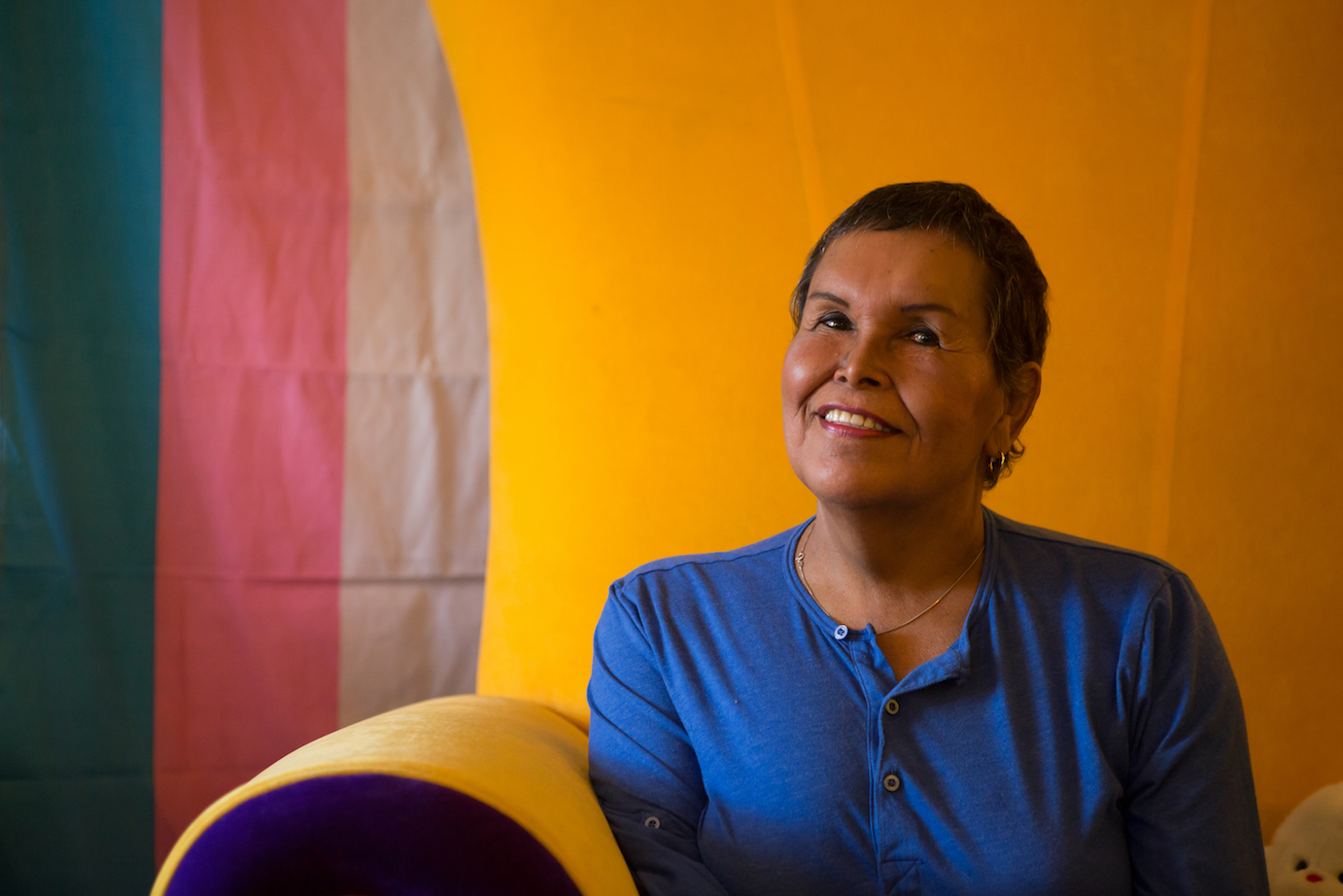
A well-known transgender activist who was at the Compton’s Cafeteria
riots in San Francisco in August 1966 will be riding in this weekend’s
Pride parade as the lifetime achievement grand marshal.
Felicia A. Elizondo, also known as Felicia Flames, received the honor
from the San Francisco LGBT Pride Celebration Committee’s board of
directors.
Elizondo, 69, is a longtime AIDS survivor and a transgender woman
who was one of the participants at the Compton’s Cafeteria riots. Born
in San Angelo, Texas, she first visited San Francisco in the mid-1960s
but she decided to come back to San Francisco to live in the early
1990s.
Knowing she was different didn’t comfort her when she was young.
“I was in the 12th grade and I left because I was being bullied,”
Elizondo said in a recent interview. It’s a story that is familiar to many
LGBT people around the world and in the U.S. alike.
Elizondo has a long resume of things she did and jobs she excelled at.
“I have been a clerk, a nurse’s aid, a receptionist, a long distance
operator,” she said while catching her breath. She also worked as a
customer service representative for Goodwill, and had stints at Los
Gatos Community Hospital, Santa Clara Medical Center, and Catholic
Charities.
She also is a Vietnam veteran, having served in the Navy.
“If the Navy won’t make me straight nothing will, honey,” she said,
laughing while she sat on what she calls her “Czarine chair.” Behind her
chair hangs the transgender flag.
Compton’s riots
Elizondo was one of the few transgender people who witnessed the
Compton’s Cafeteria riots and is still around to tell the story. The protest
was an important historical moment when the LGBT community came
together to defy discrimination that took place in San Francisco in 1966,
three years before the more famous Stonewall riot in New York City.
The exact date of the riots is unknown.
Compton’s Cafeteria was part of a chain of cafeterias owned by Gene
Compton, located at 101 Taylor and Turk Street from the 1940s to
1970s.
“It was a hangout for the transgender community,” Elizondo said. “At that time transgender people were not welcome in most gay
bars. Police used to arrest and harass transgender people at that time because crossdressing wasn’t legal.”
Even though Compton’s was open 24 hours, it decided to start closing at midnight to stop transgender people from socializing
there. Elizondo noted that this policy change led to a demonstration, and the San Francisco police were called because some of
the transgender demonstrators allegedly were making disturbing and loud noise.
After the police arrived they started arresting transgender people. But one of the transgender women threw her coffee in the face
of one of the police. That is when the situation escalated and the violence spilled out into the street. Windows were smashed,
0 comments